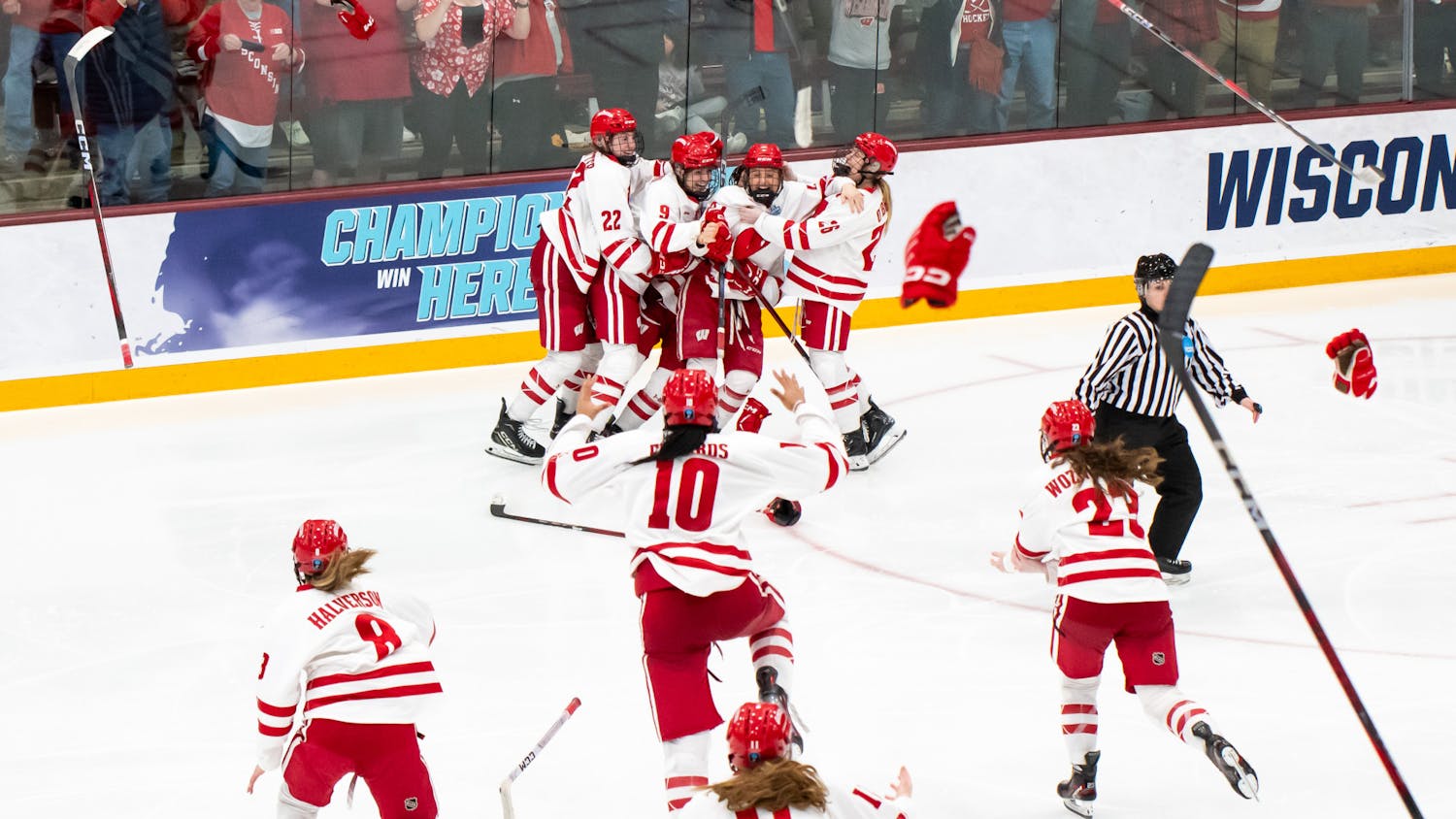Every Sunday — after a weekend of campus parties — the UW-Madison student organization Cleaning Up Campus picks up trash on Langdon Street. Each member of the crew usually collects two to three full grocery bags of trash, mostly beer cans.
Throwing away trash, for many, is simple: Take what isn’t wanted or needed, toss it into a garbage can or onto the ground and leave without a second thought.
“It's so ingrained in our generation that you can throw away whatever you [don’t] want and then get a new one, and you don't have to be responsible for [the old thing],” said Claire Clark, president of Cleaning Up Campus.
What is thrown away isn’t always “trash.” Steve Wagner, communications director for UW-Madison Facilities Planning and Management, said trash is only what cannot be recycled, reused or composted. However, even a recyclable object, like an aluminum can, can be trash if it is not taken care of properly, according to Office of Sustainability Communications Director Nathan Jandl.
UW-Madison won’t meet its goal of sustainability until it has zero waste, according to Wagner, with all items either being reused or recycled.
A culture of sustainability on the UW-Madison campus, which involves reducing as much landfill-bound waste as possible, also saves the university money. Despite the convenience of throwing things away, attempting to mitigate waste is actually cheaper for UW-Madison.
The university pays $48 each year per ton of trash at the Dane County Landfill, according to Breana Nehls, the sustainability and communication coordinator for UW Housing. In 2017 alone, financial records showed UW-Madison spent $257,541 for waste disposal. This costs the university as much as about 24 undergraduate in-state tuitions and weighs about as much as 43 blue whales.
In comparison, the University of Minnesota has to pay about $75 per ton to dispose of trash, which results in an approximate annual cost of $386,000, according to the Minnesota Daily.
Additionally, recycling actually makes money. Vendors give UW-Madison money depending on what recyclables are sent to the facilities.
In 2017, UW-Madison received $201,343 from academic buildings’ recycled materials, according to Facilities Planning and Management records. In comparison, the University of Minnesota got about $480,000 annually through similar sales. Jandl said while recycling can generate revenue, that is not the main goal of recycling on campus.
Significantly fewer items are usually recycled than thrown away. In comparison to 5,165 tons of trash sent to the landfill in 2017, 3,010 tons of materials were recycled. This means the university has not yet accomplished its goal of zero waste. Additionally, trash disposal still costs more than the extra revenue that recycling adds.
To remedy this, Jandl said that improvements to the trash reduction system — the process of making sure as much material that can be recycled is recycled — could establish a culture of sustainability on the UW-Madison campus. But in order to make improvements, Jandl said students need to be educated on how to dispose of waste.
“I would say, above ... training people into precisely where to put [waste] … we are looking to improve the culture of sustainability at the UW,” Jandl said. “That comes not only from sharing the [UW-Madison sustainability-related] programming … [but also] sharing interesting stories about research that is done across campus and in all sorts of fields related to sustainability and in trying to ... normalize sustainability as part of the fabric of being at the UW.”
However,
From 2008-’17, the amount of trash sent to the landfill declined, and the
Meanwhile, the recycling rate at the University of Minnesota in 2017 was 42 percent, according to the Minnesota Daily.
Students can create less waste on campus by making small changes in their daily lives. For instance, according to Ian Aley, Green Fund program manager for the Office of Sustainability, it is important that students discard waste into the right bin. A student is more likely to throw out all of their waste in whichever bin is closest, disregarding the type of bin it is. If the item ends up in the wrong bin, it contaminates all the materials in the container. This is why different bins on the UW-Madison campus are labeled and are either connected or nearby each other.
What is important is that trash even makes its way into a bin at all, Gallup said.
“Trash in the trash can is much better than trash on the sidewalk,” he said.
Trash reduction depends on education, according to Aley. That’s why University Housing attempts to send the message that sustainability is inherently a part of being on the UW-Madison campus, according to Nehls.
“We really try to make sustainability fun, exciting, something [that students] want to engage in,” Nehls said. “What we really try to do is show off our mission that Badgers live sustainably.”
Watch sources from this story discuss additional campus waste removal practices in the video below.






